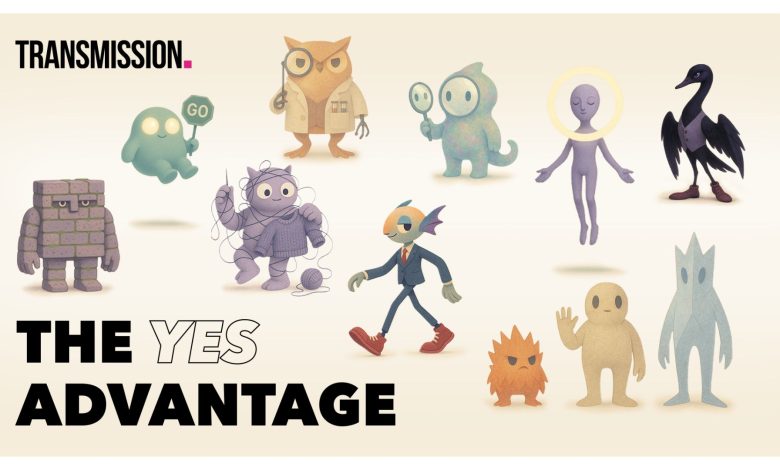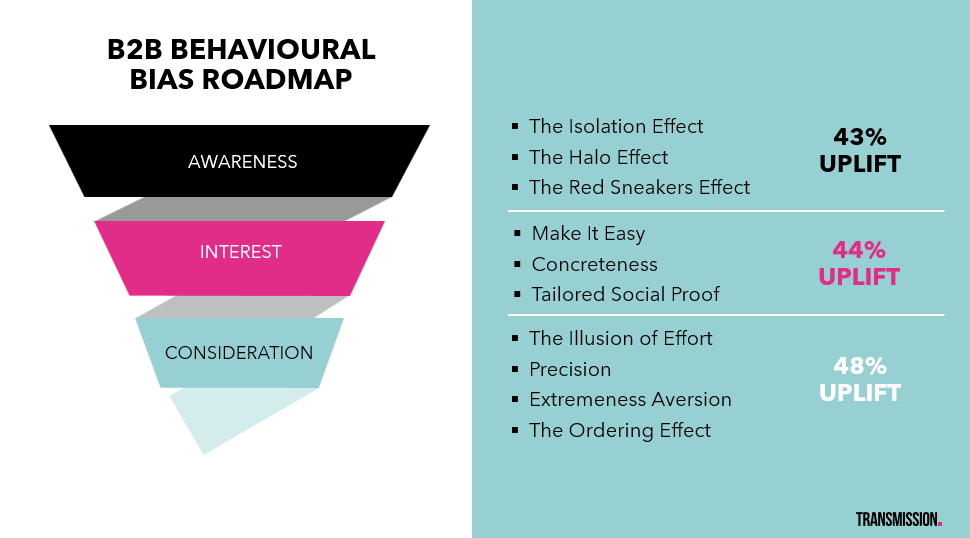
Today’s B2B buyers are not who they used to be. They research independently, expect personalized communications, and disengage from generic messages. As digital-native decision-makers enter the market, the buyer journey has evolved — becoming self-directed and non-linear with more consumer-like behaviours.
With growing skepticism and quick decision-making, corporate jargon and flashy metrics no longer cut through the competition. Marketers must earn trust through relevance, credibility, and value-driven brand storytelling.
This article exemplifies how large language models (LLMs) and behavioural science enable marketers to surpass new buyer expectations through personalized strategies — resulting in improved channel performance, KPIs, and client relationships. With this framework in mind, let’s examine how content strategy evolves in the era of AI.
Making Content Work Harder in the Age of AI
Building a credible brand starts with meeting buyers where they are — through content that resonates, ranks, and converts. As marketing teams work to make their brands more engaging, the pressure on content intensifies. Brand-level storytelling must earn trust, while mid-funnel content must reinforce and amplify that trust through AI-powered tools.
This is precisely what we set out to do when developing our content engine — an approach designed to audit, optimize, and activate content across the funnel. This human-AI-powered tool allows us to leverage AI for auditing existing assets against competitive benchmarks and search visibility, thereby transforming static content into a dynamic performance driver.
For instance, a recent audit revealed that a B2B brand had significant gaps in mid-funnel content not aligned with buyer pain points. By identifying these gaps and generating tailored assets at scale, the brand saw a 40% increase in engagement and search rankings — a direct result of aligning content with buyer behaviour and intent.
By automating and optimizing mid-funnel efforts, teams can free up time for brand-building initiatives, such as refining their narrative with brand storytelling or creating high-value, Hollywood-style productions. Now that AI-driven content optimization is established, let’s explore its integration with behavioural science to enhance marketing impact further.
The Yes Advantage — Behavioural Science Meets AI to Supercharge Marketing Effectiveness
As AI transforms content strategy, the next step is connecting digital tactics with human psychology. We commissioned The Yes Advantage, in collaboration with behavioural scientist Richard Shotton and NewtonX, to identify 9 ½ behavioural biases that reshape how B2B brands engage buyers.
Despite 58% of B2B marketers being ‘very familiar’ with behavioural science, only 24% believe it can effectively influence business buyers — revealing a gap between awareness and confidence that limits campaign effectiveness. As reported in The Yes Advantage, only 17% are actively applying these principles, giving a competitive edge to those who do.
Slide presented at the Behavioural Science Breakfast Briefing, London — illustrating where each of the 9½ biases sit within the B2B buying cycle.
Source: The Yes Advantage
At a recent Behavioural Science Breakfast Briefing in London, one slide resonated strongly with the audience: campaigns that applied these biases across the funnel saw an average uplift of 45% in effectiveness. This reinforces the idea that behavioural science isn’t just theoretical — it’s a practical tool for driving measurable impact.
Here are five behavioural biases marketers can apply using AI-driven personalization to deepen mid-funnel engagement, as outlined in The Yes Advantage:
1. The Isolation Effect, also known as the Von Restorff Effect, shows that people notice and remember what stands out or breaks patterns. In one experiment conducted in The Yes Advantage, distinctive logos were 42.4% more memorable than standard ones, and a zebra-themed cybersecurity ad was 27% more memorable than typical B2B creative.
This proves that distinctiveness drives attention and recall, especially in a sea of generative AI sameness. Marketers can leverage AI to intentionally disrupt category norms, creating memorable, standout moments that resonate.
2. Concreteness suggests that specific, sensory-rich language is more memorable and credible than abstract phrasing. As demonstrated in The Yes Advantage, when B2B decision-makers were exposed to messaging with vivid, tangible phrasing, recall increased by 24.3% compared to abstract alternatives.
Rather than relying on buzzwords or broad claims, marketers can use AI to generate specific, sensory-rich language that helps buyers picture outcomes and connect more deeply with the value offered.
3. Tailored Social Proof, also known as the Bandwagon Effect, implies that buyers are more influenced by endorsements from peers who share their industry, role, or location. According to The Yes Advantage, tailored messaging outperformed generic claims, with trust rising from 47% to 67% when the message reflected the buyer’s industry or country — a 43% uplift.
A simple shift in messaging proves that relevance builds belief. AI can enhance this effect by delivering testimonials, case studies, or endorsements tailored to the buyer’s specific context — making each message feel more credible and personally relevant.
4. Illusion of Effort, also known as the Labour Illusion, demonstrates that people value things more when they perceive effort behind them — it signals dedication and authenticity. A survey of 500 B2B buyers in The Yes Advantage found that 55.26% were more likely to trust a brand when they believed the message involved meaningful human effort.
AI empowers marketers to scale content efficiently, but to activate this bias, it’s essential to humanize the story behind the output. Whether it’s highlighting collaboration, craftsmanship, or creative process, making the effort visible builds trust and elevates perceived quality.
5. Precision highlights our tendency to trust specific, detailed information over vague or rounded claims. In The Yes Advantage, credibility increased by 34.2% when buyers saw precise performance figures, such as “36.6% faster threat resolution,” instead of a rounded “40%”.
This subtle shift signals accuracy, effort, and transparency — qualities that resonate in high-stakes B2B environments. AI can surface exact metrics to build trust and differentiate your message from competitors who rely on generalities.
When powered by human instinct, pairing behavioural biases with AI transforms good marketing into unforgettable campaigns. This powerful combination sets the stage for reimagining the entire B2B buyer journey with a more integrated, human-centered perspective.
Reimagining the B2B Buyer Journey
“In B2B, behavioural science might just be the most underused competitive advantage out there.”
— Richard Shotton, Behavioural Scientist and Author of The Choice Factory
While data quality and integration pose challenges, the real opportunity lies in transforming how marketers connect with buyers. Behavioural science provides the blueprint and AI delivers the scale — together, they redefine the B2B buyer journey as a dynamic network of touchpoints shaped by relevance, emotion, and trust. This interconnected approach moves beyond the simple funnel to a nuanced view of engagement.
Key Takeaways:
- Behavioural biases influence B2B buyers as much as consumers — identifying these biases helps marketers influence buyer actions more effectively.
- AI-powered tools help marketers put behavioural insights into practice, achieve content personalization, build brand credibility, and enhance buyer engagement.
- Mid-funnel engagement optimizes when behavioural science and AI collaborate, transforming passive prospects into actively engaged buyers.
- Strategically integrate behavioural science and AI to move from intuition-based to evidence-based marketing execution.
Behaviourally intelligent and emotionally resonant approaches will define the future of B2B marketing. By applying these principles now, your brand can lead a new era of deeper connections and measurable impact.
Ricky Abbott serves as President of Americas for Transmission, a global B2B marketing agency. With over 20 years of consulting experience with companies of all sizes and industry verticals, Ricky is an authority on B2B marketing. Whether it’s brand, demand, sales enablement, or ABM, Ricky has helped clients transform their Sales and Marketing operations through pioneering, customer-first programs designed to drive growth. He collaborates with key stakeholders, from managerial levels to CMOs and the Board, to uncover the core reasons behind his clients’ ‘why’ – questioning every brief to ensure that what clients say they want is aligned with what they really need.
He is also a board member with Engera, an organization dedicated to creating sustainable change in under-resourced communities around the world. Previously, he has worked as a Business Director at DWA and Reed Business Information.






